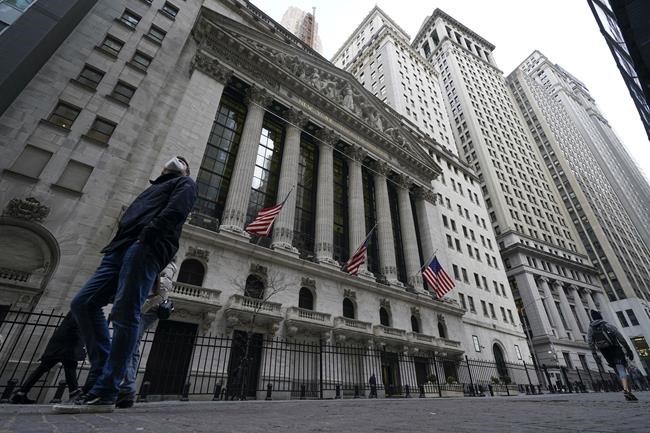NEW YORK (AP) ŌĆö Wall Street turned lower after talks on raising the nationŌĆÖs debt limit came to a sudden halt, raising worries that the country could edge closer to risking a highly damaging default on U.S. government debt.
The S&P 500 went from a gain of 0.3% to a loss of 0.2% and the Dow Jones Industrial Average went from a gain of 117 points to a loss of 90 points as of noon Eastern time.
Markets had been rising this week on hopes that the U.S. government can avoid a disastrous default on its debt. Stocks gave up their gains at mid-morning Friday after a top negotiator for House Speaker Kevin McCarthy said itŌĆÖs time to ŌĆ£ ŌĆØ on talks.
The S&P 500 is still on pace for a gain of 1.7% for the week. That would break a long, listless stretch where it failed to rise or fall by 1% for six straight weeks.
Without the ability to borrow more, the U.S. government could default on its debt for the first time and trigger widespread pain across the economy. The White House and House Republicans are staring down a June 1 deadline, which is when the government could run out of cash to pay its bills.
Better profit reports than feared by big U.S. companies have also helped support stocks in recent weeks.
DXC Technology rose 4.5% for one of the biggest gains in the S&P 500 after offering a mixed earnings report. Its revenue for the latest quarter fell shy of forecasts, but it also announced a new $1 billion program to buy back its own stock. Such purchases can goose a company's earnings per share.
On the losing side was Foot Locker, which tumbled 27.5%. It lowered its financial forecast for the year because itŌĆÖs having to mark down prices to get shoppers to buy amid what it calls a tough economic environment.
Another retailer, Ross Stores, fell 1.6% after giving a forecasted range for earnings this full year that fell short of some analystsŌĆÖ projections. That was despite its sales and revenue for the latest quarter topping Wall Street's expectations.
Deere also topped forecasts for revenue and earnings in the latest quarter, but its stock swung form an early gain to a slight drop. Its stock was most recently down 0.3%.
Much scrutiny has been on retailers this week, which also saw Home Depot, Target and Walmart report mixed results. ThatŌĆÖs because resilient spending by U.S. households has been one of the main pillars keeping the economy from falling into a recession.
Manufacturing and other swaths of the economy have weakened under the weight of much higher interest rates meant to bring down inflation. And the fear is that a drop-off in spending by households could cement a recession.
The pressure is higher after the Federal Reserve yanked its benchmark interest rate to the highest level since 2007. That has helped inflation to cool since setting a peak last summer. But it does that by slowing the entire economy in a blunt action and prices for stocks and other investments.
The hope on Wall Street is that the Fed may take a pause at its next meeting in June, which would be the first meeting in more than a year where it hasnŌĆÖt raised rates. But Dallas Fed President Lorie Logan on Thursday may be on the way unless more data arrives to suggest further cooling of inflation, which remains well above the FedŌĆÖs target.
Fed Chair Jerome Powell spoke Friday about monetary policy at an event with a predecessor, Ben Bernanke. He again stressed the importance of getting inflation back down to the Fed's target.
The yield on the 10-year Treasury edged up to 3.66% from 3.65% late Thursday. That yield helps set rates for mortgages and other important loans.
The two-year Treasury yield, which moves more on expectations for Fed action, slipped to 4.25% from 4.26%.
Japan's Nikkei 225 rose 0.8% to its highest close in about 33 years. Data on JapanŌĆÖs consumer price index for April showed a rise of 3.4% from the previous year, indicating inflationary pressures were subsiding.
Chinese stocks struggled. Hong Kong's Hang Seng fell 1.4% and Shanghai's index slipped 0.4%. Indexes were higher across Europe.
___
AP Business Writers Yuri Kageyama and Matt Ott contributed.
Stan Choe, The Associated Press


